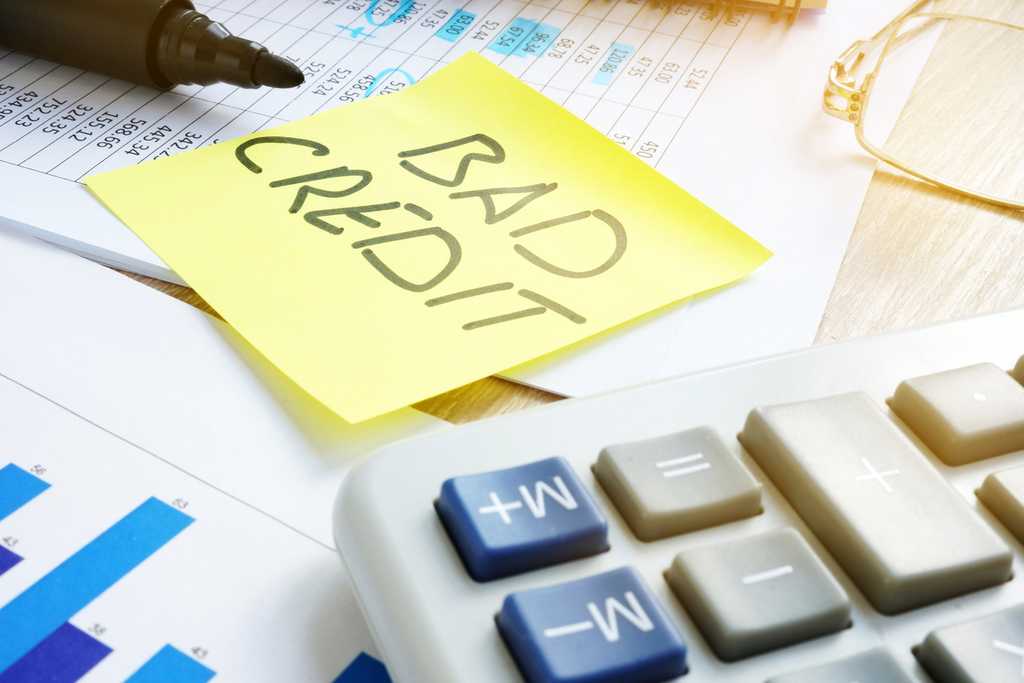In today’s world, credit is king. A bad credit score (also known as a poor credit score) can make it difficult to open a new credit card, get a car loan, or buy a house.
On a credit scale ranging from 300 to 850, a bad credit score falls below 580 for FICO and below 500 for VantageScore.
If you have bad credit and want to make improvements, it is possible. As a first step, make sure you are regularly checking your credit score and equip yourself with the knowledge to interpret what it means.
What is a bad (a.k.a. poor) FICO score?
FICO is the most widely used credit score in the U.S. Many lenders use FICO to help determine the level of risk involved with extending credit to a borrower. FICO scores range from 300 to 850. A score over 800 is considered exceptional and indicates to lenders that the borrower is likely to make their monthly payments.
A FICO score of less than 580 is considered bad, or poor. A score between 300 and 579 is considered very poor, and signals to lenders that there is risk involved with extending credit to the borrower.
Your FICO score is calculated based on five main categories of data called your credit mix:
- Payment history (35%). Your payment history (whether you pay your bills on time) accounts for the largest portion of your FICO score. A few late or missed payments will damage your credit score.
- Amounts owed (30%). Amounts owed, also referred to as credit utilization, compares the amount of credit you are using versus the amount you have available. If you are on the verge of maxing out all of your credit cards and loans, it can look like you are overextending yourself and might default on your payments.
- Length of credit history (15%). Length of credit considers how long you’ve been using credit. The longer and more positive your credit history is, the better.
- Credit mix (10%). Just as it is advisable to diversify your investments, it is good for your credit score to diversify your credit. Rather than having six credit cards, lenders prefer to see a mix of credit cards, installment loans, retail accounts, and mortgage loans. If you’re able to properly manage a mix of credit, you generally appear less risky to lenders.
- New credit (10%). Multiple credit inquiries in a short time can make you look risky to lenders. Opening a bunch of new accounts can also work to lower the average age of your accounts – remember, the overall length of your credit history matters.
What is a bad (poor) VantageScore?
Another type of credit scoring model is VantageScore. It was founded by Experian, Equifax, and TransUnion – the three credit reporting agencies. Like FICO, VantageScores range from 300 to 850. A poor credit score ranges from 500 to 600. A very poor score is between 300 and 499. When calculating credit scores, VantageScore takes a different approach to FICO and breaks down its criteria based on how influential it is.
- Extremely influential. Includes total credit usage, balance, and available credit.
- Highly influential. Your credit mix and experience
- Moderately influential. Payment history
- Less influential. Length of credit history and new accounts opened.
What Affects Your Credit Score
There are many actions that can affect your credit score, for better or worse, including:
- Paying bills on time. Consistently paying your bills on time demonstrates that you can manage credit and can help you to improve your credit score over time.
- Maxed out credit cards. Overextending yourself by maxing out your credit card or a line of credit can drop your credit score.
- Missed or late payments. Multiple missed or late payments can significantly impact your credit score. Remember, payment history accounts for the largest portion of your FICO score (35%), and 90% of top lenders use FICO.
- Closing a credit card. Closing a credit card might seem like a good idea, but it may negatively affect your score in a few ways. For one, closing an account can increase your credit utilization by reducing your available credit. If you close a long-term credit card, this can also reduce the length of your credit history.
- Bankruptcy. Filing for bankruptcy will have the largest negative effect on your credit score. If you file for Chapter 7 bankruptcy, it will affect your credit score for 10 years from the date you file.
How a Bad Credit Score Affects You?
A bad credit score can affect you in more ways than you might think.
- Buying a house. A poor credit score can make it more difficult and more expensive to get a mortgage.
- Renting a house. If you’re not able to get a mortgage, you might look to rent. Unfortunately, a bad credit score can also reduce the number of available rentals. Landlords typically want to rent to a tenant that is going to pay them back so they may run a credit check as part of the application process.
- Getting insurance. If you have a bad credit score, you might find it more expensive to get auto, home, or rental insurance.
- Getting approved for a credit card. Getting a credit card with bad credit isn’t impossible, but you will likely pay more in interest and fees. You can also consider a secured credit card that requires you to put down a cash deposit.
- Finding a utility provider. Anytime you apply for a new utility like hydro or gas, the provider will conduct a credit check. If you have poor credit it can make it harder to find a provider that wants to extend you the service. A utility company might ask you to provide an upfront deposit or even ask you for a letter of guarantee which is basically a letter from someone who agrees to pay your bill if you fail to do so.
- Landing a job. Even finding a job in some industries can be complicated if you have bad credit. For some jobs, specifically those in finance or management, the employer may run a credit check to see if you can manage money responsibly.
How to Improve a Bad Credit Score
If you currently have a bad credit score, all is not lost. There are several things you can do to improve your credit score over time.
Know your score
While regularly checking your credit score won’t improve your score it will make you aware of where you stand and what you need to do to progress.
Get to the root of the problem
It’s also important to understand why you have a bad credit score in the first place. Are you simply not making enough money to cover your essentials and using credit to fill the gaps? Are you overspending on unnecessary items? Did you fall into hard financial times and miss a few payments? Identifying why your credit score is in the poor range is the first step to improving your credit over the long term.
Never miss a payment
Payment history has the largest impact on your credit score. Missing a payment or having multiple late payments can greatly impact your credit score. Consider automating your bill payments to avoid late or missed payments.
Keep credit balances low
If possible, try to keep your credit balances far below their limits. This shows lenders that you aren’t overextending yourself and can effectively manage your credit. Making frequent payments throughout the month, rather than making one lump sum payment at the end of the month, can help to keep your balances low.
Don’t open too many accounts at once
Only apply for credit when you really need it. If you are shopping around for credit, make sure you do it within a short time frame. Every time you apply for a credit, a hard inquiry might be required and can ding your credit score.
Your Credit Score Matters
Having bad credit can affect many aspects of your day-to-day life from trying to get a car loan or attempting to purchase a home for your family. If you currently have a poor credit score, don’t beat yourself up about it. There are simple changes you can make to increase your credit score so you can work towards achieving your financial goals.

